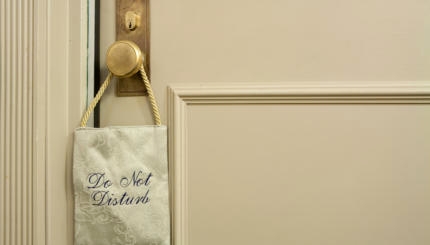An English MP named Jim Fitzpatrick was invited to a constituent’s wedding last night, and he and his wife attended, until they discovered that because it was a traditional Muslim wedding, the men and women would be seated separately. At that point, he and his wife walked out. He told the BBC, “This is a very exceptional occasion, it’s a new occurrence. It perhaps demonstrates that there is a degree of intolerance – certainly exclusion rather than inclusion which we are trying to build in the East End.”
It seems that MP Fitzpatrick sees the separate seating as a hard line position that has only recently become prevalent, and he finds it indicative of a move towards fundamentalism that he’s uncomfortable with. Most the response so far has been pretty critical of Fitzpatrick, but at least one commentary I’ve seen has made the obvious connection to Judaism.
Meanwhile, there won’t be any Orthodox Jews penning a place card for Mr Fitzpatrick in the future either. Like the Muslim weddings, all Orthodox Jewish religious ceremonies are gender segregated.
The United Synagogues, the mainstream Orthodox movement and the largest religious grouping within the British Jewish community, still rigorously separates the sexes in the synagogue either by consigning women to an upstairs gallery or by a mechitza – a curtain separating men from women.
That article goes on to say basically that once a whole generation of Jewish women are educated they’ll throw off the reigns of patriarchy, jump down from the balcony and storm the bimah. When they don’t get the rights they want, they’ll leave Orthodoxy for Conservative or Reform Judaism.
I’m offended by both sides of this. MP Fitzpatrick seems like megalomaniac who needs to make someone else’s wedding a vehicle for his political point. If he’s offended by separate seating, then he should avoid Muslim weddings, or at the very least step out without commenting.
That said, I’ve been thinking a lot about separate seating recently. Though I tend to in places without a mehitza when I have an option, I grew up in a neighborhood where separate seating was the norm, and I don’t find it intrinsically offensive. Sometimes it’s easier and genuinely less distracting to have the sexes separated. Particularly at Orthodox Jewish weddings, you’re likely to find very raucous dancing on both sides of the mehitza, and in some ways I think that makes the celebration more special.
On the other hand, it occurred to me that if I walked into, say, a hospital waiting room that had separate seating, or I went to a museum that had separate hours for men and women, I would think that was really odd and upsetting.
To me, at least, separate seating at a religious event makes sense, even if I don’t personally love it. And a wedding is a religious event (for many people) and so if the couple wants to have separate seating/dancing/eating, I think that’s legit. In this case it was the government (or a representative thereof) who was protesting. And is it really the government’s business?
Maybe we should just all be grateful that Fitzpatrick wasn’t invited to a wedding with a traditional mitzvah tantz. Who knows what he would have done with this…


